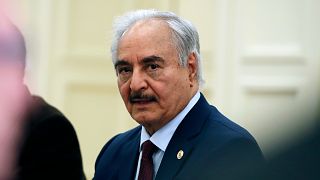Libya
A rejection of the national budget in Libya has led to the halt in oil production, thus, the National Oil Company (NOC) has declared a state of force majeure.
Declaring a force majeure allows the company to exonerate itself from its legal responsibility towards its clients.
The move also dampens hopes of a massive resumption of production.
Libya's national budget has been slowed to a vote, and was rejected on Tuesday by the House of Representatives.
The same chamber had given its confidence to the new national unity government last month.
It now has 10 days to revise and propose a new budget.
The development further compounds the long-standing feud between the national oil company chairman,Moustafa Sanallah and the Central Bank governor Sediq al-Kabir, who has been keeping a tight lid on the public purse for months.
Sanallah laments that he has only received 2% of the needs of his sprawling structure this year.
In the Hariga port, one of his branches is unable to obtain spare parts.
On Wednesday, Sanallah met the CEO of Total in Tripoli. Visiting Libya to ensure the smooth running of a contract signed in 2019, Patrick Pouyanné promised to help with the maintenance and development of sites where he is present in Libya.
For much of 2020, Libyan oil output was halted after eastern-based forces in the country’s civil war blockaded oil terminals, causing NOC to declare force majeure on all exports.













01:22
Analysts warn of trade disruptions across Africa as Israel-Iran tensions escalate
01:33
Putin downplays threat of recession at Saint Petersburg Forum, points to growth in manufacturing
Go to video
Key coalition partner votes against South Africa's budget
04:04
New budget battle looms in South Africa as parties reject VAT increase
00:49
South Africa projects wider deficits and rising debt despite improved growth
Go to video
DRC cancels auction of 27 oil blocks